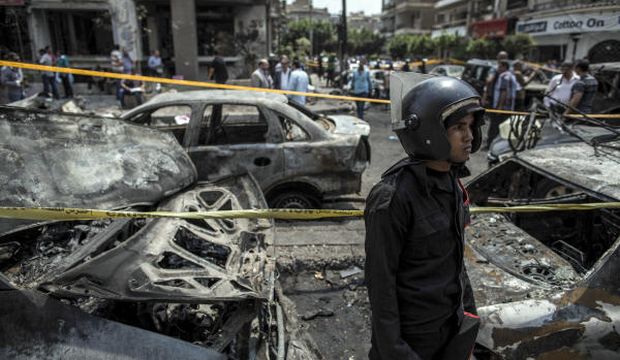Last week terrorists ruined any chance for Egyptians to celebrate President Abdel-Fattah El-Sisi’s first full year in power. The assassination of the country’s top judicial official, prosecutor-general Hisham Barakat, who was killed when a car bomb targeted his motorcade in central Cairo, and the attacks that followed in North Sinai left the media naturally completely preoccupied with the security situation in the country. Will this situation recede with time, or is this the beginning of a new, full-scale war?
Considering the nature of Egyptian civil society, we know that violence does not win. The state will not be blamed if it launches an expanded campaign against armed opposition groups and other groups affiliated with them, especially amid popular demands to send those responsible for terror attacks straight to the gallows.
Over the course of 50 years, armed groups have never won a single battle in Egypt. It is, therefore, inevitable that Salafi jihadist groups and armed Muslim Brotherhood affiliates will fail in this regard. However, no one appears to have learned from recent history, which unfortunately points to a lot of blood being spilled in Egypt over these power struggles.
The quality and magnitude of recent attacks, from the assassinations of officials to terror attacks against the military in Sinai, imply that there are groups and powers allied with the Egyptian armed opposition seeking to alter the current regime. These groups think they are capable of toppling Sisi’s government by stirring as much chaos as possible to push people to take to the streets and demand change.
This may happen in other countries, but in Egypt there are several old and august institutions, the army being the most prominent. As we have witnessed before, no other force but the army can control the street, and no power will be able to seize the Sinai or even part of it. Moreover, in Egypt there are no separatist or sectarian powers operating—whether regional or domestic—such as in Iraq, Syria, or Sudan.
Egypt has throughout history remained a united country located along the banks of the Nile River and run from the center in Cairo. The unity of the social fabric and the constancy of the military as an institution make betting on change in Egypt a poor gamble that will only disturb the government, pain ordinary citizens, and harm the economy, investments, and people’s livelihoods.
It is not surprising that the government is strict with the opposition, as there is a feeling that what is happening is not mere terrorist activity conducted by mentally disturbed groups who are being directed by other parties to seize power. We do not know if these accusations relate to mere paranoid fears or actual facts. However, there is a feeling that this is a battle of survival, and the government will not hesitate to pursue extremists beyond its borders.
Meanwhile, the regional situation is volatile and threatens all nearby countries. Libya has become the wide open gate through which the extremists sneak in, and from where arms are being smuggled into Egypt, Tunisia, and Algeria.
